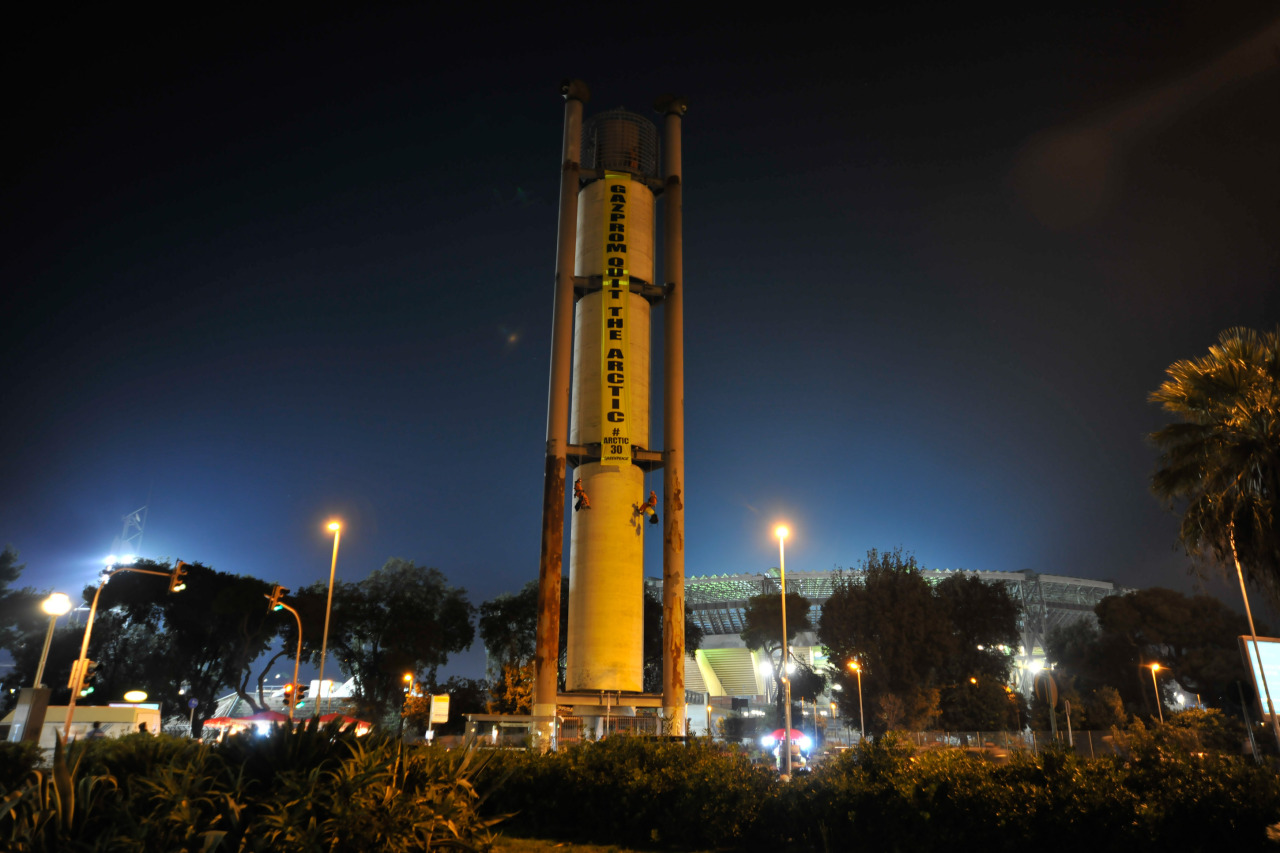Greenpeace vs Gazprom: In front of Platini’s eyes - Part 4
Greenpeace vs Gazprom: In front of Platini’s eyes - Part 4


Greenpeace vs Gazprom: In front of Platini’s eyes - Part 4
A tactical analysis of the utilisation of environmental tifosi to combat Arctic drilling in the Champions League’s most important fixture. Read the whole series here.
By Jake Cohen
As a result of Greenpeace’s activism at St. Jakob Park during the 1 October Champions League match against Schalke 04, Basel was fined around £25,000 by UEFA. UEFA imposes strict liability on the host club for the activities and behaviour that transpire in the stadium during the match. The Control and Disciplinary Committee found Basel guilty of “insufficient organisation,” ostensibly for failing to prevent the protest, despite the fact that Basel had no prior knowledge of Greenpeace’s plans.
Greenpeace specifically chose to unfurl its protest banner at St. Jakob Park because Schalke was involved in the match and UEFA president Michel Platini was in attendance. As mentioned, Gazprom is one of Schalke’s primary sponsors, and the company’s logo adorns the Schalke kit. Had Greenpeace chosen the reverse fixture at Veltins-Arena, Schakle’s home pitch, as a staging ground instead of St. Jakob Park, it would have been much easier to reconcile the fine.
If it were Schalke being fined, rather than Basel, Greenpeace would have been able to retain the moral high ground, as Schalke receives millions of sterling pounds annually from Gazprom’s sponsorship, and any fine could have been chalked up to the cost of doing business with Gazprom.
Basel, however, has nothing to do with Gazprom, and is seemingly an innocent bystander who got caught in the crossfire. While £25,000 isn’t exactly a princely sum, I think most people would agree that it’s not something Basel should have had to deal with.
When asked about Greenpeace’s reaction to Basel being fined, Duff, employing some media savvy, turned the question around, stating “clubs in the Champions League should be turning to UEFA and asking ‘why are you doing sponsorship deals with companies like Gazprom, which is a company that is at the centre of the wrongful imprisonment of thirty people in Russia, and at the centre of a new industry trying to open up the arctic region and they can only do that because of climate change which has melted the arctic ice?’ This is not the kind of company that the Champions League should be associated with, and if there are protests against that kind of company, then UEFA should be taking responsibility for that.”
“It’s quite embarrassing for UEFA that that’s how they responded. Obviously the clubs have no choice [but to pay the fine]. UEFA is quite an archaic institution, and who knows what sort of influence Gazprom has over UEFA in terms of forcing UEFA’s response?”
“For Basel, it’s something they’ve got to deal with, and in football, with the kind of money these guys are playing with, hopefully it’s not been too painful for them.”
I asked Duff if it would be fair to say that given that Gazprom pays UEFA more than £43m a year in sponsorship, and Basel will receive around £9.5m in revenue sharing as a result of participating in the Champions League, if Greenpeace would just chalk the £25,000 fine up to the cost of doing business, and Duff said “that’s totally right, it’s the cost of doing business, and we are not feeling a sense that this is the wrong target [for the campaign].”
“If the clubs are worried about this, then they need to start putting pressure or holding UEFA to account for the companies that they are taking money from.”
For reference, Basel (and the other thirty-one clubs reaching the group stage) received a base fee of over £7m, and clubs also received bonuses of over £800,000 for each group stage win and over £400,000 for each group stage draw. Basel’s performance entitles the club to over £2.4m in bonuses, meaning that the club will receive around £9.5m for participating in the Champions League. In addition, because Basel finished third in the group, the club is now participating in the Europa League, where it will receive even more money for participating in that competition.
While the Europa League is far less lucrative than the Champions League, Basel will receive £1.6m at minimum if Israeli club Maccabi Tel Aviv manages to upset the Swiss champions. Note that these figures include do not include the market pool share Basel will receive. That money is based on broadcasting deals, and Basel will receive the proportionate amount of revenue that the Swiss broadcasting market brings to the table.
While Duff emphatically states “the fear of a club being fined is not something that concerns us,” he also admits that “it’s unfortunate for [Basel], don’t get me wrong, I would prefer that the club not be fined.” Indeed, after UEFA fined Basel, Greenpeace put out a statement saying “the action was not directed against Basel, but against a third party organisation. Greenpeace regrets, therefore, that Basel has suffered damage by our action.”
As one might expect, Greenpeace has no plans to reimburse Basel, but ESPN’s Stephan Uersfeld reported that both parties got together just a few weeks after Basel was fined, and Greenpeace agreed to donate a “significant sum” on behalf of the club to a Romanian orphanage that Basel helps support.
Read: Part 3 - Executing the Protest
Read: Part 5 - The Conclusion







